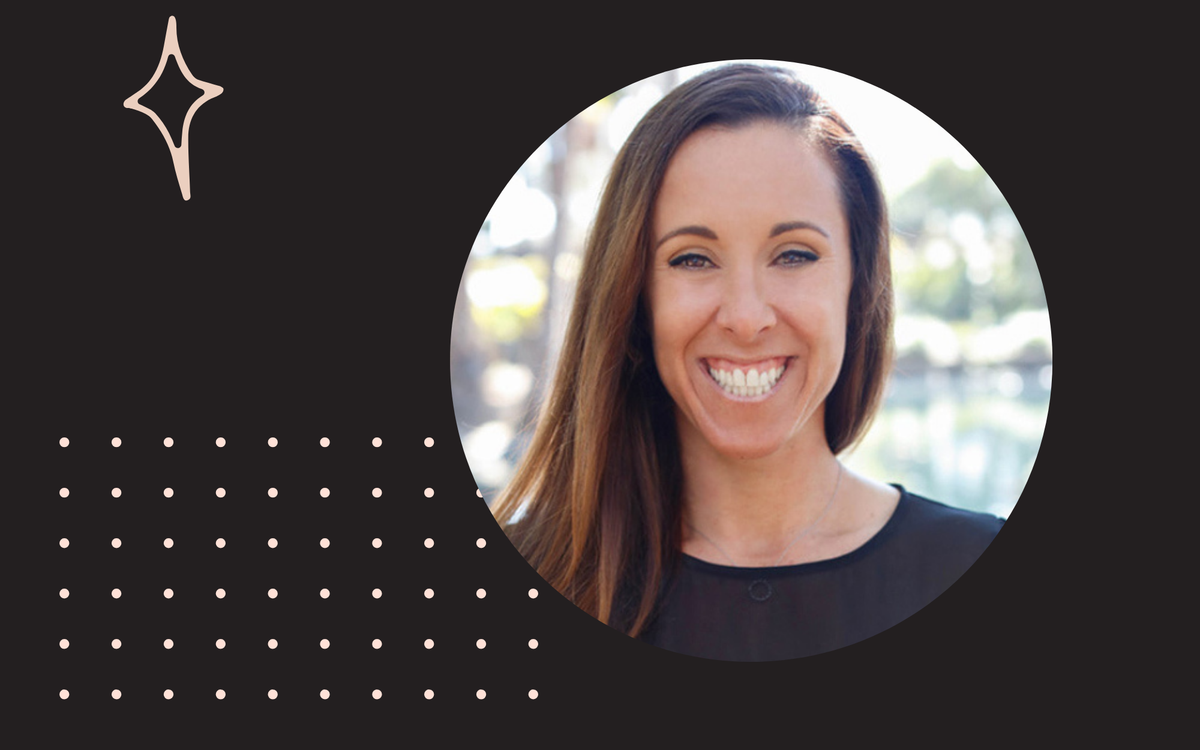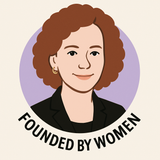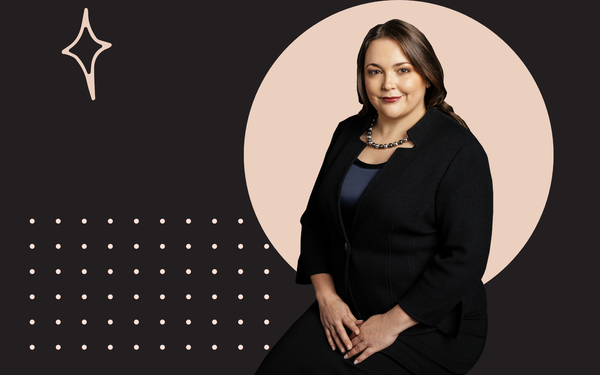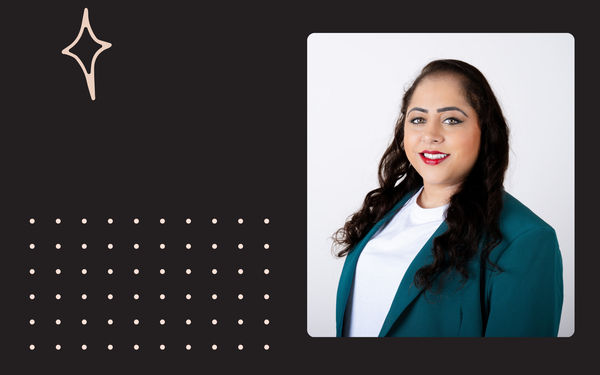Breaking Barriers and Building Bridges: Katie Brooks on Mind-Body Healing and Leadership in Mental Health

Welcome to our Women in Wellness Q&A series, where we spotlight the remarkable women who are transforming the landscape of mental health and wellness. Today, we're honored to sit down with Katie Brooks, LCSW, the visionary Clinical Director and Founder of Good Therapy San Diego.
With over 20 years of clinical experience, Katie has built something truly special—a thriving group practice that bridges the gap between traditional Western therapeutic techniques and Eastern healing methods. As an EMDR Certified therapist and approved consultant, she's at the forefront of trauma-informed care, specializing in approaches that honor both the mind and body in the healing process.
Katie's journey began at just 16 years old when a mental health crisis in her family sparked her calling to this field. What started as a personal experience of feeling helpless in the face of mental illness has evolved into a mission to reduce suffering and support others on their healing journeys. In 2012, she founded Good Therapy San Diego, which has grown from a solo practice into a collaborative group of passionate therapists serving the San Diego community across multiple locations in Encinitas, Sorrento Valley, and Oceanside-Carlsbad.
Beyond her clinical expertise, Katie is a passionate advocate for women in leadership positions within the mental health field. As both a practice owner and mentor to other therapists, she brings unique insights into the challenges and gifts that come with being a woman leading in this space. Her approach combines the warmth and empathy that drew her to the field with the assertive leadership skills she's developed over 13 years of running her practice.
In this conversation, Katie opens up about her personal path to mental health work, shares how her integrated mind-body approach is particularly powerful for women's healing, and offers candid insights into the complex landscape of female leadership in mental health. Her reflections on navigating double standards, building confidence, and creating cultures that honor authenticity provide valuable wisdom for women at all stages of their careers.
Join us as we explore Katie's philosophy that healing happens not just through insight, but through presence and integration—and discover how she's helping to shape what leadership can look like for the next generation of women in wellness.
1. What drew you to mental health work, and how has your personal experience shaped your approach?
Thank you for asking this question. I could share stories of my own traumas or speak about the experiences of family and friends, but the truth is, these stories aren’t unique to me. They’re part of the broader human experience we all share. Pain, loss, and hardship touch everyone in some form, and it’s this deep commonality that draws me to the work.
First and foremost, I love people. I find humanity to be exceptional, endlessly complex, resilient, and profoundly lovable. That genuine love for people is what drives me. I feel deeply compelled to support those who are suffering, and I consider it an incredible privilege to walk alongside someone on their healing journey.
What inspires me most is our shared capacity to grow through pain. No one escapes life unscathed, but each person’s story is unique and meaningful to their emotional growth. To be trusted with those stories, to witness someone move through struggle toward strength, clarity, or relief, that’s where the joy is for me.
At its core, my role as a therapist is to help reduce suffering. I’m profoundly grateful to do work that honors the strength of the human spirit, and to offer support, insight, and love along the way.
2. You blend traditional therapy with Eastern Methods of Healing and EMDR - how does this mind-body approach especially help women?
I’m so excited to see mind-body approaches finally gaining traction in the healing world. More and more, people are recognizing that trauma isn’t just psychological, it’s also physical. It lives in the nervous system, in our muscles, our breath, and our body memory. In my 20 years as a clinician, I’ve seen that while talk therapy can be incredibly stabilizing, it often doesn’t reach the deeper layers where trauma is stored. Without engaging the body, healing can remain incomplete.
This is especially true for women, who are statistically more likely to experience relational trauma, such as emotional abuse, attachment wounds, and childhood neglect. These experiences leave more than emotional scars; they imprint on the body and often show up as anxiety, fatigue, chronic pain, digestive issues, or insomnia. Even when life appears stable on the outside, many women still feel “off” inside.
That’s why I find mind-body approaches like EMDR, along with Eastern healing practices such as mindfulness, meditation, and breathwork, so powerful. EMDR allows the body to reprocess and release traumatic memories that were frozen in time. Eastern practices support energy flow, emotional regulation, and somatic awareness. Together, they offer a holistic path that heals not just what we know, but how we feel.
In addition, many women get stuck in what I call the “story loop” as we have been taught to process our pain verbally. Overanalyzing pain in an effort to heal it can create insight, but insight alone doesn’t resolve trauma. In fact, often intellectualization is used as a strategy to avoid feeling and can keep the nervous system locked in distress. Mindfulness and EMDR offer a different path: one that gently invites the body into the healing process, where real transformation happens through presence and integration, not endless retelling.
Lastly, what I love most about this work is how empowering it is. These client-led approaches teach women to trust their inner wisdom, to regulate rather than react, and to reconnect with themselves in a way that feels safe, grounded, and whole. When we combine the best of neuroscience with the wisdom of the body, healing becomes not just possible, but deeply transformational.
3. As a practice owner training other therapists, what's the biggest challenge you see for women in mental health leadership?
I’ve come to learn that there are both gifts and challenges that come with being a woman in a leadership role in the mental health field. Some of the harder moments I’ve faced include navigating double standards around leadership style, finding balance between work and home life, and facing underrepresentation in executive spaces.
When I first stepped into leadership, I leaned into the qualities that felt natural to me: warmth, kindness, and nurturance. I truly believed those traits would carry me far. And in many ways, they have—but I also quickly realized that without clear, unapologetic boundaries and assertive communication, it was difficult to earn the level of respect I needed to lead effectively. Once I began showing up more firmly, I noticed something else: when I was too confident or direct, I risked being labeled as cold or too intense. And as a therapist, those labels can cut deep—they feel just as damaging as being dismissed or overlooked.
What I’ve found is that being a woman in leadership often means walking a very fine line between assertiveness and empathy. I’m not sure men have to think about that balance in quite the same way. It takes an incredible amount of intention and emotional agility to manage, and honestly, even after 13 years of running Good Therapy San Diego, I’m still learning. But I’ve also grown a lot. I’ve learned that you can be both kind and firm, both nurturing and strong—that boundaries are not in conflict with compassion. They are what allow us to lead well.
Work-life balance has been another area of growth for me. Like many women, I’ve wrestled with the tension of wanting to build a meaningful career while also wanting to be deeply present for my family. I have an incredibly supportive husband who’s both my partner in business and in life, but even with that support, there have been moments where I’ve felt pulled in two directions—where one part of my life needed more of me than I had to give. There’s been guilt, doubt, and exhaustion. But over time, I’ve worked hard to give myself grace. I remind myself that I’m doing my best, and that my best is enough. There is enough love in me to care deeply for my clients, my team, and my children—even if I can’t always be everything to everyone at once.
Another challenge I’ve encountered is the assumption that executive leadership still belongs to men. While women make up the majority of the mental health workforce, we are still underrepresented in top leadership roles. I see this most clearly when I’m collaborating with outside companies, especially those led by male teams. More than once, I’ve been mistaken for someone’s assistant, or people have assumed my husband is the CEO. It’s subtle at times, but it’s there—eye contact directed to him instead of me, my decisions second-guessed until they're repeated by someone else.
I’ve learned to meet those moments with calm, grounded confidence. I stay anchored in what I’ve built, the clarity of my voice, and the deep value of my vision. I no longer feel the need to prove my worth—I simply focus on showing up fully and authentically as myself. One of the greatest sources of strength for me has been community. Surrounding myself with other women in leadership has been vital—not only for support, but for inspiration and perspective. I’m especially grateful for my management team, who are not only incredibly skilled clinicians but also thoughtful, talented leaders. We meet monthly to challenge, encourage, and grow alongside each other. Their insight and collaboration have shaped me in profound ways—I truly wouldn’t be the leader I am today without them.
Despite all the challenges, I wouldn’t trade this path. Leading in this field has been one of the most rewarding experiences of my life. It’s hard and humbling and beautiful. I get to build a culture that honors healing, authenticity, and growth—not just for clients, but for our entire team. And I feel proud every day to help shape what leadership can look like—especially for the next generation of women coming up behind me.
Are you a woman leader with an inspiring journey to tell? Founded by Women is on a mission to elevate and amplify the voices of women making an impact.
If you're breaking barriers, driving change, or paving the way for others, we’d love to feature your story. Get in touch with us today!
👉 hi@foundedbywomen.org


